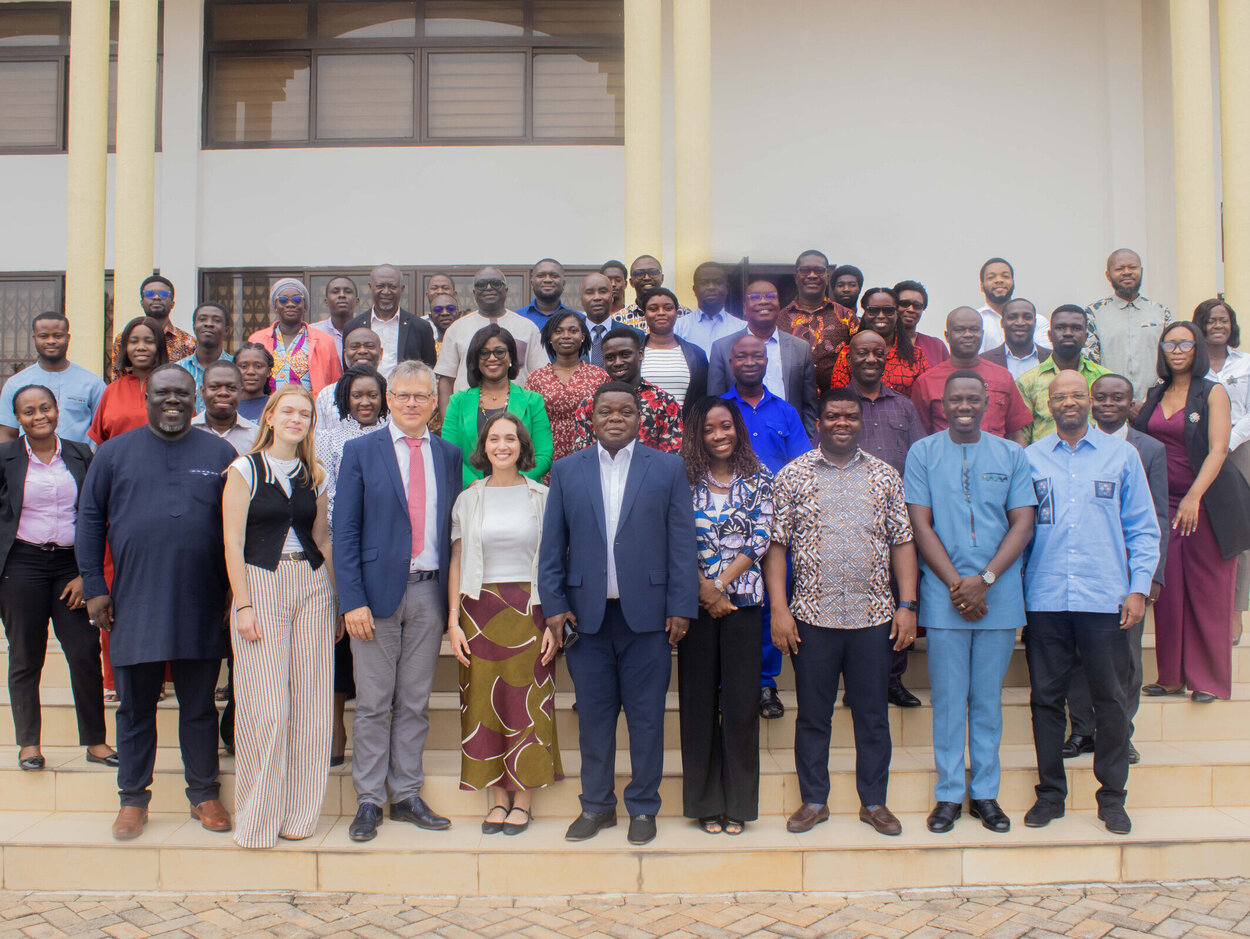Establishing sustainability in international trade is a lengthy process. Integrative, transparent and well-financed strategies are needed to ensure that trade promotes environmental protection and social justice alongside economic growth. More than 50 experts from research, politics and industry discussed what these should look like and how they should be implemented at the University of Ghana in Accra at the beginning of May. The Thünen Institute was represented by Martin Banse, Head of the Thünen Institute for Market Analysis. The expert panel's recommendations were based on the results of the Trade4SD project.
According to the experts, these measures would accelerate change:
- Trade agreements that are in line with the UN Sustainable Development Goals (SDGs),
- continuous reforms and robust regulations,
- Cooperation between the state and companies to drive change,
- investment in resilient value chains, and
- greater political cooperation and coordination between stakeholders.
The event at the Institute of Statistical, Social and Economic Research (ISSER) focussed on the increased alignment of foreign trade between the EU and Ghana with sustainability goals, particularly in the agriculture and food sector. In addition to the presentation of results, participants presented case studies related to Ghana and discussed the value chains of cocoa and cashew nuts in panel discussions.
More about the TRADE4SD project:








